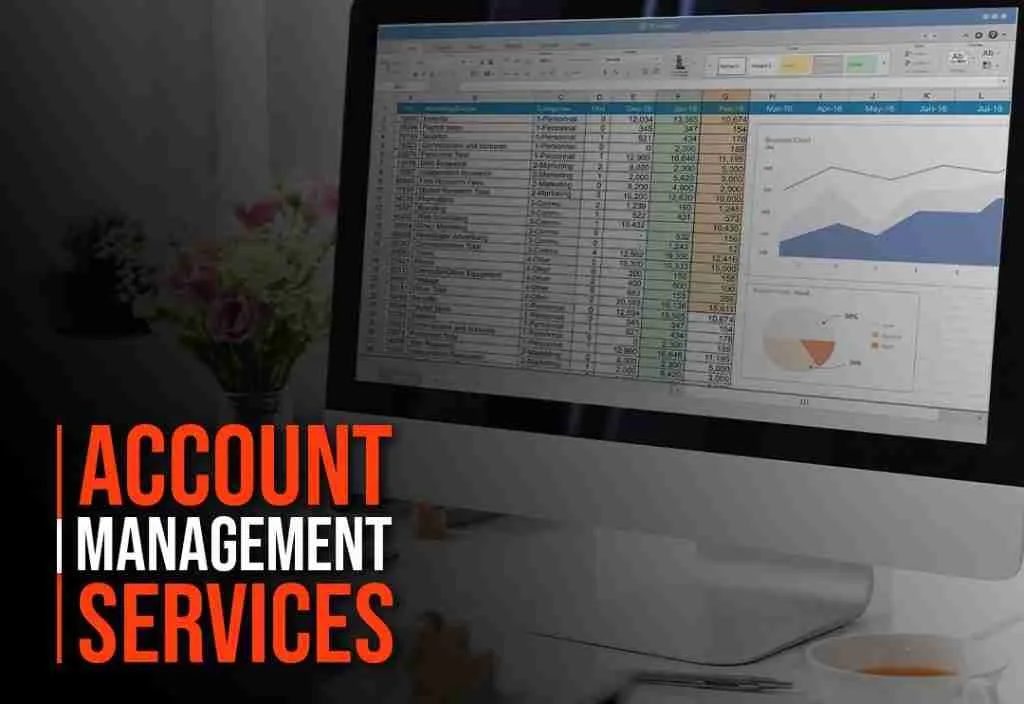When your books don’t match your bank statements, that’s not a small mistake—it’s a flashing red warning sign. One wrong entry, one untracked payment, or one duplicate charge can throw your entire financial picture off balance. That’s why financial reconciliation services in USA are the backbone of every serious business.
Reconciliation isn’t about paperwork; it’s about survival. It’s how you catch fraud before it drains your account, how you stay compliant before the IRS comes knocking, and how you make sure the numbers guiding your decisions aren’t garbage. Skip it, and you’re gambling with your company’s future.
From bank reconciliation to account reconciliation, outsourcing these services keeps your books sharp, accurate, and audit-ready, so you can focus on building the business instead of cleaning up financial messes.
What Are Financial Reconciliation Services? A Short Introduction
Financial reconciliation is the process of comparing internal financial records with external statements, such as bank records, credit card statements, vendor invoices, or customer payments, to identify discrepancies and correct them.
Common reconciliation services include:
- Bank Reconciliation: Match your cash book with the bank’s. If they don’t agree, you’re either missing money or missing records. Both are bad.
- Vendor Reconciliation: Your suppliers don’t forget to charge you. Make sure you don’t “forget” to record it.
- Customer Reconciliation: Ever had a client swear they paid you, but your books say otherwise? Yeah, that’s why this matters.
- General Ledger Reconciliation: Your GL is the Bible of accounting. If accounts inside don’t match up, you’re building a house of cards.
- Intercompany Reconciliation: Got multiple branches or subsidiaries? If their numbers don’t align, expect a financial nightmare when consolidation time hits.

Why Businesses in the USA Need Financial Reconciliation Services?
There are some reasons why it is crucial:
- Accuracy in Financial Records: If your records don’t match reality, you’re not running a business, you’re running a fantasy novel. Numbers don’t lie, but sloppy accounting sure does. Accurate books mean you know exactly where your money is, no guessing, no assumptions.
- Fraud Detection: Think fraud “won’t happen” in your company? Cute. Fraud loves sloppy records. Reconciling your accounts regularly is how you catch the shady invoice, the duplicate payment, or the “oops” transaction that mysteriously benefits someone else.
- Regulatory Compliance: This is the United States. Between the IRS, SEC, state tax boards, and auditors, somebody’s always watching. If your books don’t line up, you’re not just inviting fines, you’re inviting legal drama you don’t want.
- Cash Flow Management: You can’t run payroll, pay bills, or plan investments if you don’t know how much cash you actually have. And no, your “gut feeling” isn’t a financial strategy. Recon gives you the real numbers, so you don’t bounce checks like a rookie.
- Better Decision-Making: Want to pitch to investors, get a loan, or scale your operations? Good luck doing that with garbage numbers. Investors smell bad books from a mile away. Reconciliation keeps your data clean so your decisions aren’t built on BS.
Top Industries That Benefit from Financial Reconciliation Services in the USA
- E-commerce & Retail: Online stores deal with thousands of micro-transactions daily, Stripe, PayPal, Shopify, Amazon, credit cards, returns, chargebacks, it’s chaos. If you don’t reconcile, you won’t notice that Amazon held back fees, or that PayPal quietly docked you extra. That’s money leaking right under your nose.
- Banking & Financial Services: Banks, fintechs, and investment firms don’t get a “maybe” pass. Misreporting one number can cause lawsuits, investor panic, or regulators breathing down your neck. Here, reconciliation isn’t a choice; it’s survival. The truth is, if a bank “forgets” to reconcile, that’s not a mistake; it’s malpractice.
- Healthcare: Hospitals, clinics, and billing companies are juggling insurance claims, patient payments, vendor invoices, and government reimbursements. One missed entry could mean thousands lost.
- Hospitality & Travel: Hotels, airlines, travel agencies, transactions fly in from everywhere: bookings, cancellations, refunds, partner commissions. Without recon, you’ll lose track fast and bleed cash. The fact is, if you can’t reconcile in hospitality, you’ll check your business into bankruptcy faster than your customers check into rooms.
- Manufacturing & Distribution: Suppliers, raw materials, freight charges, overseas payments, this industry is a reconciliation minefield. One mismatch in accounts payable or receivable can derail supply chains. The fact is, if your factory’s books aren’t reconciled, your “production line” is just an expensive guessing game.
Why Outsource Financial Reconciliation in the USA? Major Benefits
Here’s the thing: Yes, you can reconcile in-house. You can also wash your own car, cut your own hair, and do your own dental work. Doesn’t mean it’s smart. Outsourcing reconciliation in the USA is about being efficient, not cheap.
- Cost Savings: Hiring full-time staff for reconciliation is like buying a Ferrari to do grocery runs. Outsourcing provides expert service without incurring payroll expenses on tasks that can be offloaded.
- Expertise You Can’t Fake: Honestly, most in-house bookkeepers are generalists. Outsourced firms? They specialize in catching financial slip-ups for breakfast. They know GAAP like the back of their hand and won’t miss details that amateurs gloss over.
- Tech-Powered Accuracy: Modern providers don’t rely on manual calculations; they utilize AI, automation, and enterprise-level software that flag errors in seconds. If your current team is still manually ticking off Excel rows, you’re living in the Stone Age.
- Scalability: Got 500 transactions a month? Great. Suddenly it’s 5,000? If you’re in-house, that’s a meltdown. Outsourcing scales with you, no panic hiring, no late nights. They expand their service as you expand your business.
- Focus on Growth, Not Grunt Work: Every hour your team spends babysitting spreadsheets is an hour they’re not building strategy, making sales, or innovating. Outsourcing lets your team do what they were hired for, grow the business.
- Time is Money, Stop Wasting Both: Reconciling hundreds of transactions by hand is like mowing your lawn with scissors, slow, painful, and completely unnecessary. Outsourcing gives you back your time so you can run your business instead of drowning in spreadsheets.
- Audit-Ready at All Times: Auditors don’t care about your excuses. They want clean, traceable records. Outsourced reconciliation firms build everything in an audit-proof way. Translation: when the IRS comes knocking, you hand them perfect books instead of sweating bullets.
- Fraud Prevention on Steroids: Outsourced providers catch sneaky fraud faster because they’re trained to look for it. Fake vendor? Duplicate payment? “Creative” employee expense? They’ll spot it. Think of them as financial watchdogs, only cheaper than lawsuits.
- Access to Best-in-Class Tools (Without Paying for Them): Top providers use advanced reconciliation software. Those tools cost thousands of dollars if you buy them yourself. Outsource, and you get all the benefits without footing the tech bill.
- Consistency: In-house accountants get sick, quit, take vacations, or just zone out. Outsourced teams? They don’t skip a beat. Your books stay consistent 24/7 because you’re not depending on one person’s mood or availability.
- Data Security: Good providers are obsessed with cybersecurity. Encryption, restricted access, compliance with US data laws, you name it. Compare that to in-house files floating around in shared drives. Which one do you think hackers love more?
- Unbiased Reporting: Your internal team might sugarcoat mistakes to save face. Outsourced experts don’t care about office politics. They give you the brutal truth, straight up, no filter. Which means you actually see problems before they explode.
- Scalable Teams, Zero Hassle: Need one accountant this month and ten next month? Outsourcing firms adjust instantly. Try scaling your in-house team that fast, you’ll drown in hiring headaches.

How to Choose the Right Reconciliation Partner in the USA
Outsourcing reconciliation isn’t about dumping your books on the first company that says, “We got you.” Pick the wrong partner and you’ll trade errors for bigger errors. Pick the right one, and your finances run smoother than a Tesla on autopilot. Here’s how to know:
- Industry Experience: Don’t hire a rookie who’s never touched your industry. Healthcare books are nothing like e-commerce books. Ask for case studies. Ask for client references. If they look confused, walk away. For instance, if they have to Google how your industry works, they’re not your partner; they’re your experiment.
- Mastery of Accounting Standards: This is the USA we play by GAAP rules. And if you’re global, maybe IFRS too. Your partner had better know these standards cold. “Close enough” doesn’t cut it when regulators are involved. Like, if your provider says, “Don’t worry, we’ll figure it out,” run. That’s accountant-speak for “we’ll mess it up.”
- Data Security is Non-Negotiable: You’re literally handing them your financial lifeline. If their cybersecurity sucks, you’re begging for hackers to crash the party. Look for SOC 2, ISO, GDPR compliance, encryption, the works. In short, if they’re emailing you spreadsheets with no password, fire them yesterday.
- Scalability & Flexibility: Your business isn’t static, your reconciliation partner shouldn’t be either. If they can’t handle a sudden spike in transactions or adjust to new tools, they’ll slow you down. The truth is, if they can’t scale with you, they’ll strangle your growth.
- Transparent Pricing: No smoke, no mirrors. A real partner gives you upfront pricing with no “gotcha” fees. If they dance around the money talk, they’re hiding something. Believe it or not, but if their pricing structure looks like a phone bill, you’re about to get robbed.
- Tech-Driven, Not Stone Age: If they’re still reconciling manually on Excel, leave. The best reconciliation partners in the USA use automation, AI-driven platforms, and advanced ERP integrations. That’s how they stay accurate and fast.
Conclusion
Here’s the bottom line: financial reconciliation services in USA aren’t “nice to have”, they’re survival gear. Whether you’re an e-commerce brand with thousands of transactions a day, a healthcare provider drowning in insurance claims, or a manufacturer juggling vendors, you need clean, accurate, audit-ready books.
Skip reconciliation, and you’re one step away from fraud, compliance nightmares, and financial chaos. Do it right, better yet, outsource to the pros, and you’ll run lean, spot fraud early, stay audit-proof, and make decisions with numbers you can actually trust.
Businesses that treat reconciliation like an afterthought end up on life support. The ones that outsource it to experts? They thrive.
So, stop babysitting messy spreadsheets. Hand it off to professionals like Outsourcing Buddy today, who know account reconciliation inside and out, and focus on building the empire you set out to create. For more details, schedule a free consultation meeting.

Top Frequently Asked Questions
Question: What exactly are financial reconciliation services?
Answer: Financial reconciliation services in the USA involve comparing your internal financial records with external documents, such as bank statements, vendor invoices, and customer accounts, to ensure they match. If they don’t, reconciliation addresses the discrepancies before they escalate into bigger problems.
Question: How often should account reconciliation be done?
Answer: That depends on your business volume. High-transaction businesses (think e-commerce, retail, or finance) should reconcile daily or weekly. Lower-volume businesses can manage monthly. Waiting until year-end? That’s financial suicide.
Question: What’s the biggest risk of not reconciling regularly?
Answer: Fraud and financial inaccuracy. Missed duplicate charges, incorrect deposits, and untracked payments compound quickly. Without bank reconciliation and account reconciliation, you’ll end up with books you can’t trust, and regulators won’t forgive.
Question: Which industries in the USA benefit the most from outsourced financial reconciliation services?
Answer: Every industry does, but especially e-commerce, banking, financial services, healthcare, hospitality, and manufacturing. These sectors deal with complex, high-volume transactions, and outsourced reconciliation services keep the chaos under control.
Question: What should I look for in an outsourced financial reconciliation partner in USA?
Answer: Look for industry experience, mastery of GAAP and compliance standards, airtight data security, scalability, and tech-driven processes. If they’re not using automation or AI tools for account reconciliation, they’re playing catch-up while your competitors get ahead.


